The History Book Club discussion

This topic is about
Devil in the Grove
SUPREME COURT OF THE U.S.
>
ARCHIVE - APRIL 2016 - Devil in the Grove: Thurgood Marshall, the Groveland Boys, and the Dawn of a New America by Gilbert King
 Helga wrote: "Teri wrote: "Helga wrote: "As a resident of SC I am well aware of the Dixiecrats since Strom Thurmond was such a large presence in the state. In 1948, the Democratic Party splintered due to philoso..."
Helga wrote: "Teri wrote: "Helga wrote: "As a resident of SC I am well aware of the Dixiecrats since Strom Thurmond was such a large presence in the state. In 1948, the Democratic Party splintered due to philoso..."Clearly, I need to read more about Thurmond. I didn't realize that his politics had changed.
 Response to Jim - #187
Response to Jim - #187Jim wrote: "There have been a lot of comments about discrimination and the treatment of African Americans in the South. I the book the author of the book related about how life was better in the north."
I posted a message earlier about growing up in MI, and also mentioned the role that migration from the South played in race relations.
I've been wanting to add a follow-up to my comments.
I didn't meant to suggest that racial tensions in the North were entirely the result of a migration from the South. Tensions definitely increased, but they had been in existence in Northern and Midwestern states for over a century. I think it's important to understand that for a long time, people truly believed that there was scientific evidence that "proved" that blacks, or people of any color, were inherently inferior to whites. They were believed to be less intelligent, less capable, and more emotional and irrational. (Science also "proved" that women were less capable then men too, but that's a whole 'nother discussion.)
I have textbooks that my grandparents used in school in Ohio in the early 1900's. A geography lesson included a breakdown of traits of people of various races and ethnicity. In almost all examples, non-whites (non-WASPs) were described as being inferior to whites in various ways. These were commonly used textbooks at the time. So it's not surprising that generations of people, even in the North, had a racial bias, because it's literally what they were taught to believe.
Another factor that is often overlooked when it comes to race relations in the North are the feelings generated by the Civil War. It's commonly accepted that many families in the South lost homes, farms and businesses during and after the War, which led to a great deal of anger and resentment towards both Northerners and blacks. But, it's not as well understood that the same thing happened in the North. When a husband or son was killed, or returned home missing limbs, there were many women left on their own who weren't capable, either physically or sometimes even legally, of maintaining a farm or business. So those family properties were lost, just as they were in the South. As a result, there was a great deal of resentment towards blacks because many people blamed them, and their desire for freedom, for causing the War and it's painful aftermath.
There have been race riots in Northern states since before the Civil War. But those that happened in the early to mid-20th century, especially in industrial cities, were often associated with competition for jobs, and the creation and rise of unions. In some places, during a strike, management brought in blacks who were willing and glad to replace striking workers. This was especially true because for a long time, many unions didn't allow blacks to join, so they didn't feel any loyalty to the growing power of the unions. As a result, they had no problem with crossing the picket line. Management also realized that they could employ blacks at lower wages, which made them happy but made the striking white workers feel that their jobs and wages were threatened. In short, many of the mid-20th century race riots were as much about employment and economic competition as they were about race.
The riots that occurred later, especially in the 1960's were a different story as they involved many other factors.
But it's fair to say that segregation and racial tensions were alive and well in the North. It took a lot of court cases to compel the North to get rid of the de facto segregation that was still prevalent in the North. Although the civil rights movement was primarily focused on destroying the Jim Crow environment in the South, it also forced changes in the more subtle but still unjust attitudes and practices in the North.
 Teri wrote: "Jim wrote: "I the book the author of the book related about how life was better in the north."
Teri wrote: "Jim wrote: "I the book the author of the book related about how life was better in the north."Hi Jim ~ I am not sure what you meant by the comment above. If you were mentioning a book, do you hav..."
 Jim wrote: "Teri wrote: "Jim wrote: "I the book the author of the book related about how life was better in the north."
Jim wrote: "Teri wrote: "Jim wrote: "I the book the author of the book related about how life was better in the north."Hi Jim ~ I am not sure what you meant by the comment above. If you were mentioning a boo..."
In one of the first 5 chapters it is mentioned that Harlem and the shared home address provided a good home/place to live for African Americans. I was not referencing a book nor was I doing any self promotion. I am sorry if I didn't word my response better. I will try to better express myself in the future.
 Ahhh. Very good. Just a typo, I see. No worries. I think you meant "In the book..." Makes sense now.
Ahhh. Very good. Just a typo, I see. No worries. I think you meant "In the book..." Makes sense now.
 Jovita wrote: "Response to Teri's question for me
Jovita wrote: "Response to Teri's question for meI'm glad you asked me that, as I've been thinking a lot about what would motivate seemingly normal, sane people to behave in this manner. I think a lot of it is..."
Chapter 8/ response to Jovita
(view spoiler)
 Week 2 Questions
Week 2 QuestionsThe rest of the South never seems to accept Florida as a part of it, but I think this book makes clear that in the small towns and farming communities, Florida's response to Black people was exactly the same as the rest of the southern states and, in some cases, even worse. Prejudice and fear always seem to be worse in these areas than in the large, more impersonable urban areas, probably because economic conditions are usually better. There are certainly exceptions to that. The Leo Frank trial and lynching that took place in Atlanta in 1915 certainly shows that large cities were equally as capable of grotesque behavior.
I did know about the "work or fight" laws but not under that name. They were usually included under common vagrancy laws and their enforcement depended on whether or not there was enough labor available. In good times blacks were left alone for the most part and in bad times they pretty much ser ved as the scapegoat.
I have read about the idea of debt slavery but was not aware that it existed still as such. I would point out that being held constantly in debt to the farm or factory or even the "company store" has been chronic throughout the history of all workers. The use of debt to coerce a labor force has been widespread mainly because it is so effective. Think indentured servitude, mining towns, etc. I suppose the idea arose as an alternative to outright enslavement, not only here in this country but everywhere else. Abuse of the labor force at this end is possible because where workers are unskilled and in jobs that require no real training or knowledge, they have no where else to go and thus, little or no leverage against an employer. Particularly if they are kept from organizing as they were, and in some cases, still are in the South.
Response to Jovita
I have wondered about that religious aspect myself. How do devout, practising Christians ( in this case) justify murder, abuse, mutilation for any reason, but certainly in a case where the accused are the accused only because of their color? Then I remember that the Bible itself was used to justify slavery (sons of Ham, etc.). The real tragedy in this case and almost all of the others is that the black community had no backup. Out of fear and/or cowardice, the State and Federal governments mostly refused to get involved or to uphold the rights of the black man in this country.
I really don't care what kind of wicked opinion or so-called righteous belief you hold, it should be made clear that if it causes actual harm to a person or group, you will not be allowed to act upon it. We are seeing an example of this right now in the laws being passed to prevent serving (and more) the LGBT community. Those are just Jim Crow laws by another route. I grew up in the era where every store, bar and gas staion, motels, five and dimes, and even dry cleaners had a "We reserve the right to serve.." sign and I sure don't want to see us turn back to that.
 Great comments all. I think this has been a very good discussion. It truly is hard to wrap your head around the thinking of these people and why they felt they could get away with their heinous acts.
Great comments all. I think this has been a very good discussion. It truly is hard to wrap your head around the thinking of these people and why they felt they could get away with their heinous acts. To add to what Pamela said - here's some information on the Curse of Ham
https://en.wikipedia.org/wiki/Curse_o...
And here is an interesting NY Times article on the Curse of Ham, slavery and racism:
http://www.nytimes.com/2003/11/01/art...
 Teri, thanks for posting those articles. My apologies. I sometimes forget that not everyone is familiar with the things I might mention. In light of that, I am posting a link to an article on the Leo Frank case for those not familiar with it.
Teri, thanks for posting those articles. My apologies. I sometimes forget that not everyone is familiar with the things I might mention. In light of that, I am posting a link to an article on the Leo Frank case for those not familiar with it.http://www.georgiaencyclopedia.org/ar...
Chap. 7 Discussion Questions (view spoiler)
Having said that, one of the funniest things I saw growing up in Atlanta was a group of Klansmen in full regalia trapped in a small restaurant while a circle of black protesters walked around the diner. The Klansmen wouldn't come out because this time, they were afraid. The police had to come and escort them through the picket lines.
 Pamela ~ don't forget your spoiler tags around the book discussion questions. Thank you!
Pamela ~ don't forget your spoiler tags around the book discussion questions. Thank you!Response to Pamela - Chapter 7 Discussion Questions
(view spoiler)
 Hi, I got a late start, but I just got done reading chapter six this morning. I saw some discussion questions for chapter six, I managed to copy one question. But lost the thread. I am not sure If I got the question on the Dixiecrats right?
Hi, I got a late start, but I just got done reading chapter six this morning. I saw some discussion questions for chapter six, I managed to copy one question. But lost the thread. I am not sure If I got the question on the Dixiecrats right? Chapter six discussion questions (view spoiler)
 Rachel wrote: "Hi, I got a late start, but I just got done reading chapter six this morning. I saw some discussion questions for chapter six, I managed to copy one question. But lost the thread. I am not sure If ..."
Rachel wrote: "Hi, I got a late start, but I just got done reading chapter six this morning. I saw some discussion questions for chapter six, I managed to copy one question. But lost the thread. I am not sure If ..."Hi Rachel. No worries, the questions for Chapter 6 are posted to message 194 of this thread.
Response to Rachel - Chapter 6
(view spoiler)
 Do you think McCall/others ever considered that with Smith vs. Allwright and the passage of the law in Texas for Blacks voting in the primaries that it would affect their little area in Florida?
Do you think McCall/others ever considered that with Smith vs. Allwright and the passage of the law in Texas for Blacks voting in the primaries that it would affect their little area in Florida?(view spoiler)
 Rachel wrote: "Do you think McCall/others ever considered that with Smith vs. Allwright and the passage of the law in Texas for Blacks voting in the primaries that it would affect their little area in Florida?
Rachel wrote: "Do you think McCall/others ever considered that with Smith vs. Allwright and the passage of the law in Texas for Blacks voting in the primaries that it would affect their little area in Florida?..."
Response to Rachel - McCall / KKK
(view spoiler)
 This might be a little off topic, but I was googling pictures of lynchings (I don't recommend it) and I came across one where African-American protesters had set up a mock noose on a tree to protest Ferguson.
This might be a little off topic, but I was googling pictures of lynchings (I don't recommend it) and I came across one where African-American protesters had set up a mock noose on a tree to protest Ferguson. After reading a few chapters and learning about the lynchings, no wonder the African-American community is all stirred up, really, they have a reason to be.
 Tim wrote: "This might be a little off topic, but I was googling pictures of lynchings (I don't recommend it) and I came across one where African-American protesters had set up a mock noose on a tree to protes..."
Tim wrote: "This might be a little off topic, but I was googling pictures of lynchings (I don't recommend it) and I came across one where African-American protesters had set up a mock noose on a tree to protes..."I am a historian and have done a lot of research on lynchings and the worst part of it is that some of these pictures were made into post cards and sent to family members and friends elsewhere. Some of the messages even boast of the fact that they burned and hung a N^$$@# and the smiling faces of children and people is insanely creepy.
 I'll take your word for it Tim. :-) I hadn't heard about the mock noose for Ferguson but I know that Joe's Crab Shack restaurant, that posts nostalgic pictures, recently came under fire because someone noticed that there was a lynching in the background of the photo.
I'll take your word for it Tim. :-) I hadn't heard about the mock noose for Ferguson but I know that Joe's Crab Shack restaurant, that posts nostalgic pictures, recently came under fire because someone noticed that there was a lynching in the background of the photo.(http://www.cnbc.com/2016/03/11/joes-c...)
I can't imagine post cards. Sad!
 Matthew wrote: "Confused re: Ernest Thomas as fourth suspect:
Matthew wrote: "Confused re: Ernest Thomas as fourth suspect:[spoilers removed]"
Response to Matthew - Ernest Thomas
(view spoiler)
 The Blinding of Isaac Woodard by Woody Guthrie
The Blinding of Isaac Woodard by Woody GuthrieThis is not Woody singing, but a version of his song:
https://www.youtube.com/watch?v=4A7A5...
 Response to Chapter 8 Discussion Questions:
Response to Chapter 8 Discussion Questions:(view spoiler)
Response to Chapter 10 Discussion Question #2:
(view spoiler)
 Matthew wrote: "Response to Teri -- Ernest Thomas
Matthew wrote: "Response to Teri -- Ernest Thomas[spoilers removed]"
Response to Matthew - Ernest Thomas
(view spoiler)
 Matthew wrote: "Response to Chapter 8 Discussion Questions:"
Matthew wrote: "Response to Chapter 8 Discussion Questions:"Response to Matthew - Chapter 8 and 10
(view spoiler)
 Response to Teri
Response to TeriThat statstic on Florida surprised me also. I would definitely have picked Mississippi, Teri.
If anyone wants to read a very good definitive history of the antebellum era through to the civil rights era, try The Most Southern Place on Earth: The Mississippi Delta and the Roots of Regional Identity by James C. Cobb. It is particular to Mississippi history but pretty much everything could be said about the rest of the South as well. It deals with all that we have been discussing here. It came out in the mid 1990's but I still remember it as being one of the best. It's not actually a light type of history, more academic, but it will give anyone unfamiliar with the history of the South a good idea of what went on and somewhat of how it came to be that way.
 by
by
 James C. Cobb
James C. Cobb
 I was also surprised by the Florida statistics and would have picked Alabama or Mississippi. SC had quite a lot of lynchings as well.
I was also surprised by the Florida statistics and would have picked Alabama or Mississippi. SC had quite a lot of lynchings as well. This weekend in SC, as reported by the State newspaper there is a symposium about understanding the Reconstruction era in SC. Jim Clyburn the first African-American to represent SC in the US Congress will deliver the address. Clyburn stated, "SC is still feeling the lasting legacy of post-Reconstruction era. Black leaders during Reconstruction took our state and nation in new direction, creating public schools and social welfare institutions. But progress stopped with the enactment of Jim Crow laws. The institutionalized discrimination of that time that led to our modern day problems of educational, health and income disparities that continue to plague SC. The Reconstruction period marked the transition from slavery to freedom and citizenship for nearly 4 million enslaved blacks. It saw the enactment of the 13th, 14th and 15th amendments which expanded constitutional protection of citizen rights for all Americans."
Jim Crow laws and white supremacists like the KKK reversed these changes and progress and wrought the violence of lynchings and turmoil as we are reading in this book. They did not want blacks to gain any rights or wealth.
http://www.thestate.com/living/articl...
 Pamela and Helga - thanks for the added information. Pamela, don't forget your citation. ;-) Another book added to my TBR pile.
Pamela and Helga - thanks for the added information. Pamela, don't forget your citation. ;-) Another book added to my TBR pile. It is very interesting how the events / laws of 60+ years ago, still affect us today. I hope that events that are happening today (Ferguson, North Carolina transgender law, et. al.) don't once again set us back. Do you think that is the direction some areas are going in?
 by
by
 James C. Cobb
James C. Cobb
 Answer to Chapter 9 Discussion Questions
Answer to Chapter 9 Discussion Questions The time, place, and circumstances made this a very difficult trial for the defense to win. Getting a life sentence instead of the death sentence was a small victory. However, it was probably considered a win since it is probably all the defense could hope for at the time.
Answer to chapter 10 discussion questions;
The two biggest injustices to me were that the defendants did not receive a fair trail(In any shape or form) and the lynchings.
 As we are coming to the enc of our second week of reading the Devil and the Grove I wanted to share some of my learnings and reactions to this section.
As we are coming to the enc of our second week of reading the Devil and the Grove I wanted to share some of my learnings and reactions to this section.1. I have a hard time understanding lynching of African Americans. Many lynching were done in daylight without people wearing hoods. You may wish to look at http://withoutsanctuary.org/main.html - warning these are very disgusting images.
People came out to the lynchings like they were going to a picnic. Not only did men and women attend, but children were present at the lynching.
2. I knew Thurgood Marshall was involved in numerous cases defending African Americans. What I didn't know that his goal was not to win every case (He couldn't due to the "system."). His goal was to get the state courts to make enough mistakes so he appeal the case.
3. I couldn't read about Sheriff McCall without thinking about Bull Connor.
 On page 122 it is stated that if an all white jury handed down a life sentence instead of a death sentence you had in a sense won. How is this a win?
On page 122 it is stated that if an all white jury handed down a life sentence instead of a death sentence you had in a sense won. How is this a win? (view spoiler)
 Steve wrote: "Answer to Chapter 9 Discussion Questions "
Steve wrote: "Answer to Chapter 9 Discussion Questions "Hi Steve - Don't forget to use spoiler tags for discussion specific to the book.
Response to Steve - Chapter 9 and 10
(view spoiler)
 Jim wrote: "As we are coming to the enc of our second week of reading the Devil and the Grove I wanted to share some of my learnings and reactions to this section.."
Jim wrote: "As we are coming to the enc of our second week of reading the Devil and the Grove I wanted to share some of my learnings and reactions to this section.."Hi Jim - Don't forget to use spoiler tags for discussion specific to the book.
Response to Jim - Week 2 reading
(view spoiler)
 Rachel wrote: "On page 122 it is stated that if an all white jury handed down a life sentence instead of a death sentence you had in a sense won. How is this a win? .."
Rachel wrote: "On page 122 it is stated that if an all white jury handed down a life sentence instead of a death sentence you had in a sense won. How is this a win? .."Response to Rachel - Page 122
(view spoiler)
 Robyn wrote: "Marc wrote: "I too am a little late to the discussion, just finished chapter 5. I knew only a little about Justice Marshall (basically, that he was one, he was pivotal in the civil rights movement)..."
Robyn wrote: "Marc wrote: "I too am a little late to the discussion, just finished chapter 5. I knew only a little about Justice Marshall (basically, that he was one, he was pivotal in the civil rights movement)..."you are talking about a class as opposed to real life. I've seen and experienced businesses not wanting my business because of the color of my skin. Logically, the business loses because they won't earn any future money from me and anyone I tell (don't eat there, they don't like us), but that is not how they are measuring success. They are measuring success as strikes against minorities like me, not against the business's bottom line. Google business discrimination cases for examples. The fact it still is happening shows how far we still have to go, and yes, a few likely are fake, but most are not. And the fact that certain states allow (or try to allow, only having governor's veto it, sometimes because it's the right thing to do, other times over businesses threatening to leave) discrimination, perhaps not against skin color, but against sexual orientation) shows we aren't free from discrimination just yet.
In training classes, you likely do see that. but if that was always true, then it wouldn't be a point now, would it? Not shooting you down, just saying that for some people, it's a surprise, even if they won't express it openly.
 Response to Week 2 Questions
Response to Week 2 Questions(view spoiler)
General comment on the Week 2 chapters: It's getting increasingly hard for me to read this book. I just can't believe (and yet I can) there was so much evil in people. But, I guess it's "normal" when you consider another race less than human. Still, to condemn to death four people, so that you could have your 5 minutes of fame, is beyond sick. I'm still waiting to find out what was going on in that silly girl's head. I also wonder about that age old debate on nature vs. nurture when it comes to Norma.
 Samanta wrote: "Response to Week 2 Questions
Samanta wrote: "Response to Week 2 Questions1. The author devotes a large part of this story describing the forces of laws and justice in Jim Crow South, and he makes it a point to describe Florida as "South of ..."
I agree with you Samanta. It is disturbing to read the depravity and violence of these people and what was norma thinking to cause this?
 Marc wrote: "Florida leading the nation in lynching and bull conner reply.."
Marc wrote: "Florida leading the nation in lynching and bull conner reply.."Reply to Marc - Florida Lynching stats
(view spoiler)
Books mentioned in this topic
Malcolm X: A Life of Reinvention (other topics)The Most Southern Place on Earth: The Mississippi Delta and the Roots of Regional Identity (other topics)
The Most Southern Place on Earth: The Mississippi Delta and the Roots of Regional Identity (other topics)
Strom Thurmond's America (other topics)
Strom Thurmond's America (other topics)
More...
Authors mentioned in this topic
Manning Marable (other topics)James C. Cobb (other topics)
James C. Cobb (other topics)
Joseph Crespino (other topics)
Joseph Crespino (other topics)
More...




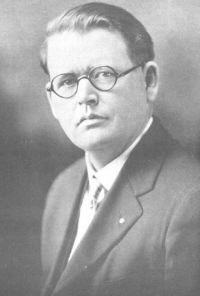
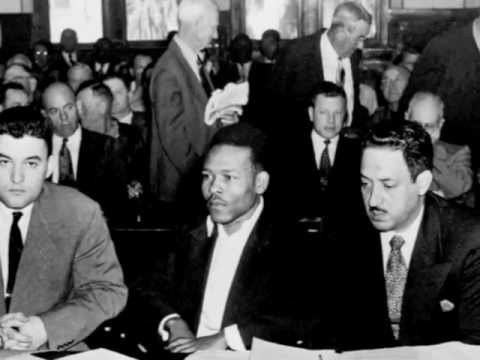
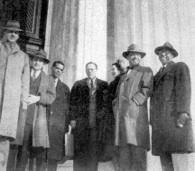
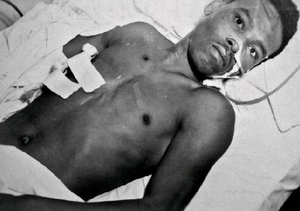
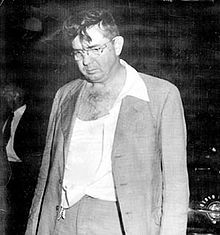



Response to Jovita - Week 2 Discussion - Questions 2 and 3
(view spoiler)[Yes, and keep in mind that it was generation after generation propagating the idea that blacks were less than human. This came from early slavery days. Even though that was really no longer the thought at the time, they were still considered a lesser class. Even good Christian people at the time felt that way. But not everyone. ;-) (hide spoiler)]